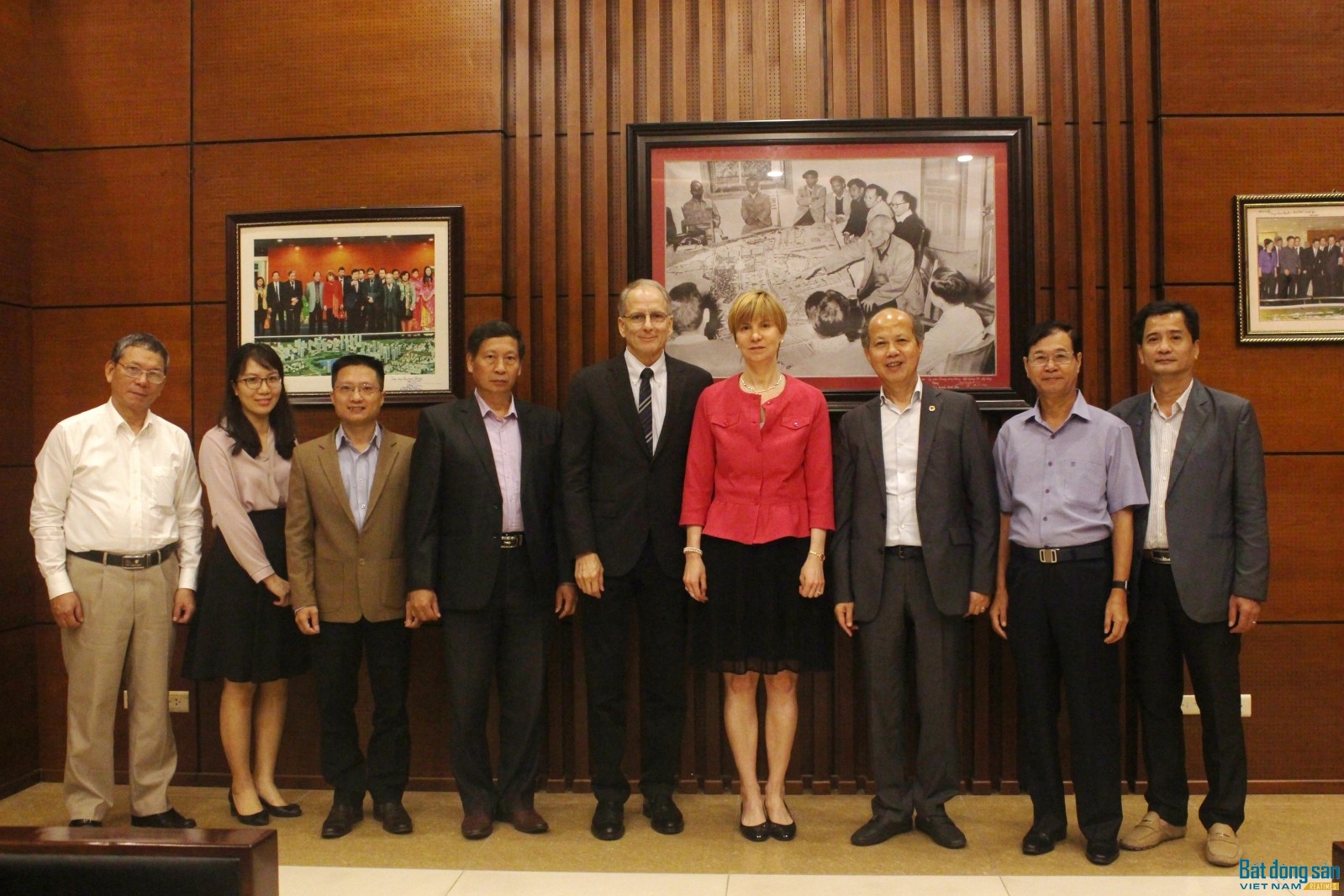Chairman Nam was accompanied by the steering committee of VNREA including Vice President of VNREA Nguyen Manh Ha and Secretary General of VNREA Do Viet Chien.
“We want to understand more about the Vietnam’s real estate market to get information about supervising banking safety, lending policies, and managing bad debt,” said Kachina D’huster, representative of the WB.
The rate of urbanisation growth in some countries like China and Thailand is 65 per cent while in Vietnam is 38 per cent, according to chairman Nam.
Vietnam Government has a master plan on housing with a vision towards 2040. It’s estimated that about one million people from rural areas will move to live in cities each year. Most of them are a young population who haven’t been married.
Chairman of VNREA receives delegation from the World Bank
Currently, each Vietnamese person has a 23sq.m space of housing, according to a survey. However, it doesn’t fulfill their desires, and the demand of housing of Vietnamese people is still large. The structure of the real estate market shows that the proportion of housing is about 70 per cent, the rest is office projects and resort real estate.
President Nam emphasised that the biggest problem in the real estate market in Vietnam is the imbalance of housing products.
“Real estate firms mostly develop middle- and high-class products, so there is a lack of affordable housing projects for low-income people,” he said.
In early 2013, the Government lended VND30 trillion for enterprises to build affordable houses and for people to buy houses over three years. At that time, social housing projects developed rapidly. The Government issued regulations and policies to support low-cost housing, low-interest bank loans, and support enterprises to build affordable houses in 2014.
“Regretfully, since 2016, the allocation of funds for this market has been constrained due to difficulty of budget. We have given recommendations for sustainable development, focusing on affordable housing development but we see not many new signals.”
In addition, President Nam also shared that the real estate market always needs large and long-term capital but in Vietnam, the main source of capital is bank loans, which account for 70 per cent of total capital. There are policies for raising capital but they still have many barriers.
"The real estate market makes a great contribution to the economy, as well as creating thousands of commodities, so it needs to be nurtured and managed to grow sustainably and not break down."
“It is regrettable that state agencies are often anxious about the market, and always seek to reduce the cash flow into this industry,” chairman of VNREA analysed.
“Accordingly, the restrained cash flow and policies limiting banks to lend for real estate bring difficulties for enterprises, " he said.

Representatives of VNREA and WB in the photo session
Kachina D'huster, also expressed interest in finding out more about VNREA's operations in the way Vietnamese businesses set out criteria to value price of real estate and land. She expects that in the future, VNREA would help WB in providing information on the market, dealing with bad debts and co-operating with companies of valuation. To which, Chairman Nam, on behalf of VNREA, said he is willing to support WB’s endeavours and is open to share needed information.
"Due to the low budgets, we think that the whole society, including the government, businesses, and the people should work together. In Germany, people have a savings bank to buy houses, it is also desirable in Vietnam. If WB has a chance to work with Vietnam’s State Bank, you should mention this.”
“With commercial and welfare meaning, housing is an important issue, so it is necessary to have a savings bank, as well as good credit that will help the poor to afford a house.”



















